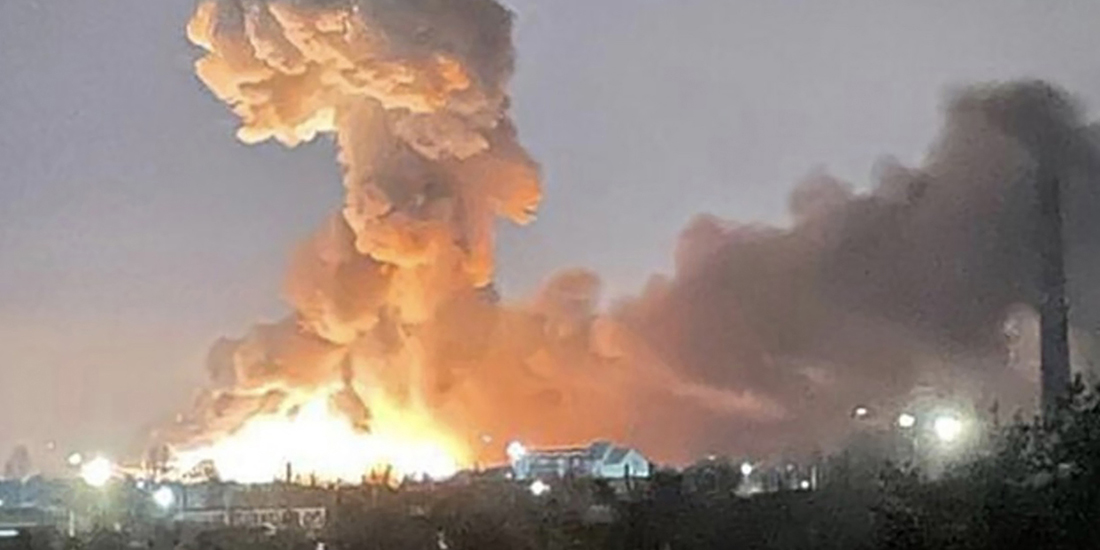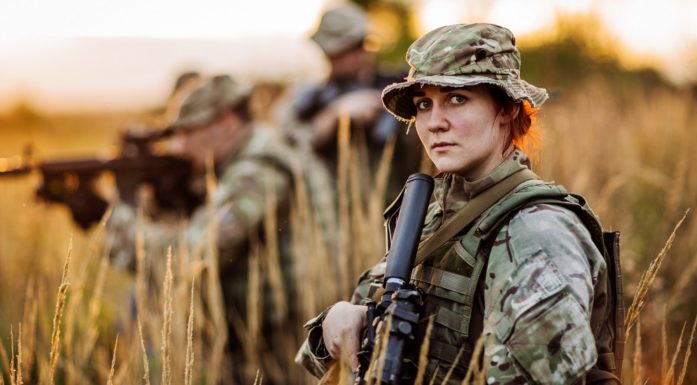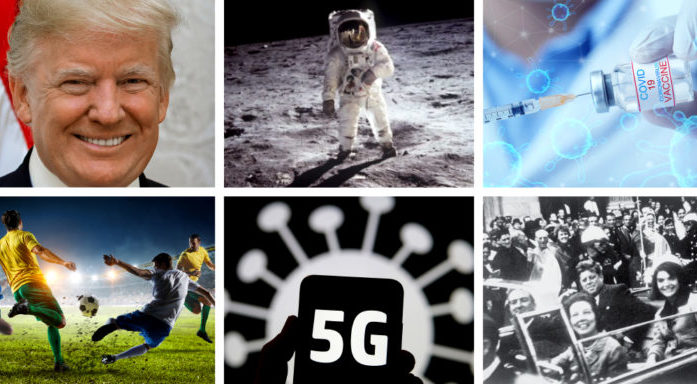The loser’s ultimate revenge
The war in Ukraine is a disaster foretold. The warnings have come from Russia – and they have been coming for at least 15 years and they have been consistent. But they have been ignored by the outside world. Russia’s invasion of Ukraine represents the loser’s ultimate revenge.
The “loser” is the Russian Empire. The version of this empire that we call the Soviet Union collapsed in the early 1990s and marked the end of the Cold War.
A new Europe was to be created, and it was created by the winners of the Cold War.
The winners of the war usually dictate the subsequent peace and the new regional or global order. This is a challenging exercise, in part because we often fall for the temptation to interpret the prevailing balance of power as the final and future one.
“World War II is as much a consequence of a failed peace settlement as of Adolf Hitler and his grotesque Nazi ideology.
But relative power relations always change over time. And the losers of the war may eventually end up in a position of power where it is possible to reverse some – or sometimes even all – of the loss. In other words, revenge may come.
- You might also like: What do you do when hackers threaten to shut down an oil platform?
This is the short version of Germany in the interwar period. In losing World War I, the country could never let go of the consciousness of a state and a nation that was severely punished by the winners of the war.
But Germany’s potential as a great power could hardly be eliminated. Germany came back, as it always does. The relative changes in power gave the country the opportunity to tear apart a peace settlement that most Germans – not just the Nazis – perceived as deeply unfair.
World War II is as much a consequence of a failed peace settlement as of Adolf Hitler and his grotesque Nazi ideology.
- You might also like: Fear and dread in the Norwegian landscape
In the same way, Russia and Russians – and not just Vladimir Putin and his regime – have never accepted the informal “peace settlement” following the Cold War.
The empire was divided into 15 different units – new states. NATO expanded eastwards, the EU expanded eastwards and liberal ideology spread eastwards. And not least, Russia was humiliated.
“Russia’s war is a war of aggression carried out by an unequivocal aggressor.
The 1990s were a disaster for Russia. The country experimented with economic, capitalist shock therapy and democratization. What resulted, however, was economic, demographic, ideological, military and territorial collapse.
Russia in the 1990s was no great power, but rather a pathetic, failed state.
- You might also like: Winter War in Finland was a struggle against invading power
Vladimir Putin and his regime are notorious tactical liars. As the current situation has clearly demonstrated, another truth reigns in Moscow about current events. But honesty is palpable at the strategic level, when it comes to the regime’s overarching and long-term geopolitical issues. Honesty for honesty’s sake is still not recognized as such, however.
Putin and Russia believe what they say about the security threat that NATO and the EU expansion represents. They believe what they say about the need for a new security architecture in Europe.
They believe what they say about US hegemony being the root of an insecure world. They believe what they say about liberal values not having a legitimate role to play in Russian society. They believe what they say about the need for a sphere of influence in the surrounding areas.
And they believe what they say about Ukraine being a natural and historical part of Russia.
- You might also like: Exposure to others’ suffering even worse than being shot at
For the West, these claims and arguments are naturally difficult to swallow. They are considered unacceptable and are ignored in practice. Putin’s herostratic speech at the Munich Security Conference in 2007 – perhaps the first significant warning that the current world order was not acceptable to Russia – was not taken seriously.
The war against Georgia in 2008 (which can be considered a tactical mobilization against a promised NATO membership for both Georgia and Ukraine) was not taken seriously.
The invasion and annexation of the Crimean Peninsula and the intervention in the Donbas in 2014 were not taken seriously for what they really were: part of Russia’s attempt to reverse a development in Europe and the world that is considered an existential threat to the Russian regime, and to Russia as a state and nation.
- You might also like: Democracy doesn’t happen automatically
Russia’s war is a war of aggression carried out by an unequivocal aggressor. But the war is also made possible by the fact that the winners of the Cold War, in particular the United States, have for decades sought to expand their own sphere of influence virtually regardless of the resistance that might exist in Moscow.
But resistance and counter-reactions inevitably occur when the source of the resistance has acquired the capacity to strike back. Russia has gradually built up this capacity. It is in such a period – where the relative power gradually changes – that peace settlements can be adjusted, even if compromise is required on some of one’s own central principles and thoughts about what a legitimate world order really is.
- You might also like: Warriors’ down bedding could ease journey to realm of the dead
Rule number one in laying out a geostrategy is that a preferred choice cannot be made regardless of the political or geopolitical consequences that these actions are expected to entail.
In other words, ideological convictions – or the belief in “justice” – often have to give way to realpolitik assessments. Or rather, they should often give way.
In the case of Ukraine, ideological beliefs – the belief in justice, peace, democracy, liberal values and a sovereign Ukraine’s right to self-determination – have long dominated over realpolitik considerations. And now Ukraine is paying the gruesome price as the losers of the Cold War take revenge.
This article was also published in Adresseavisen / Midtnorskdebatt.no





